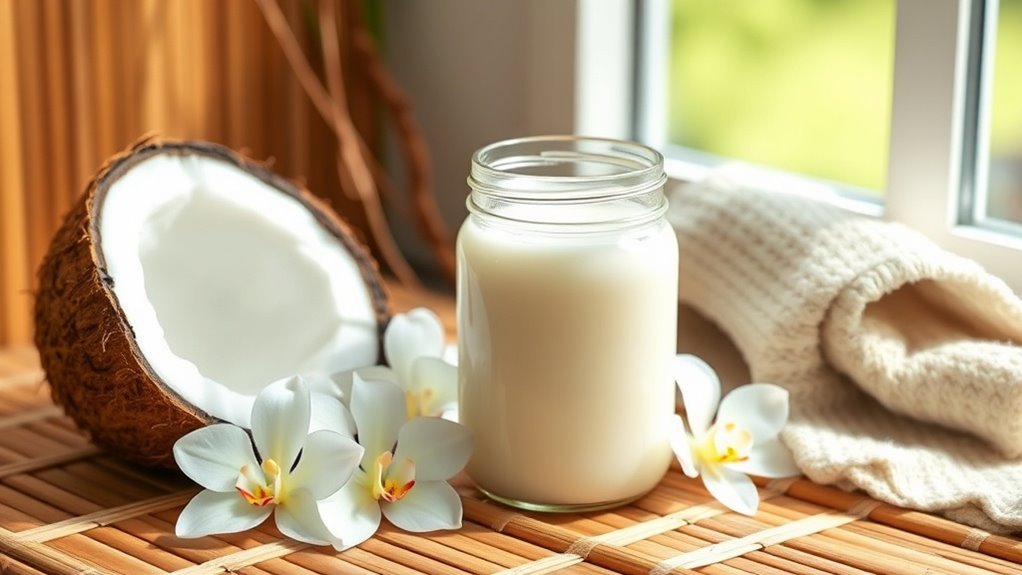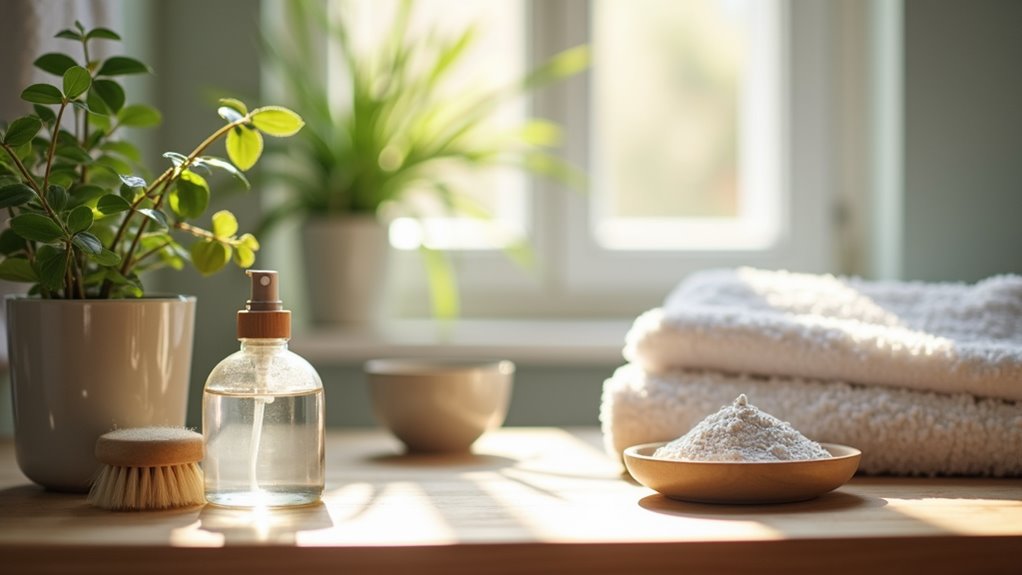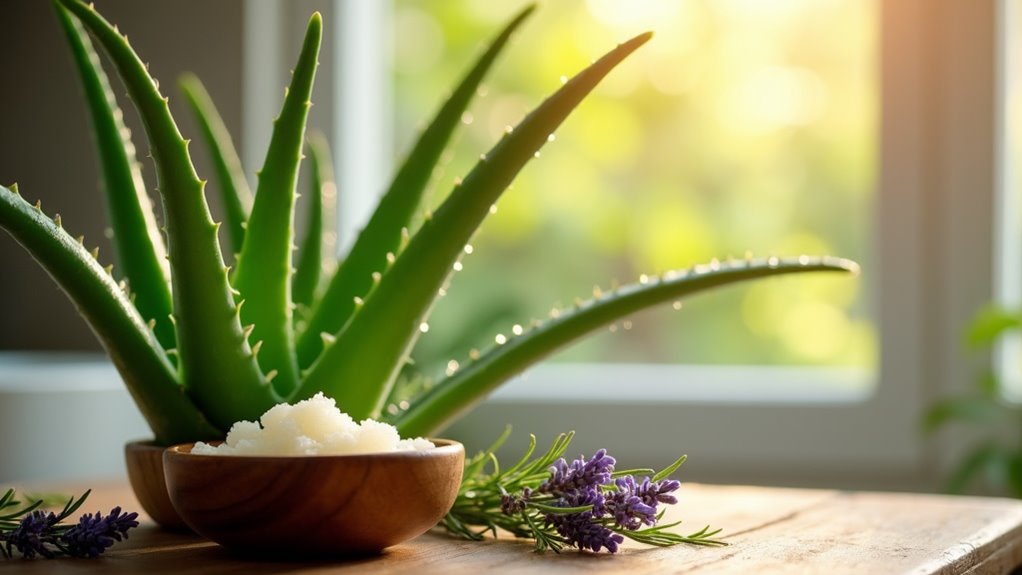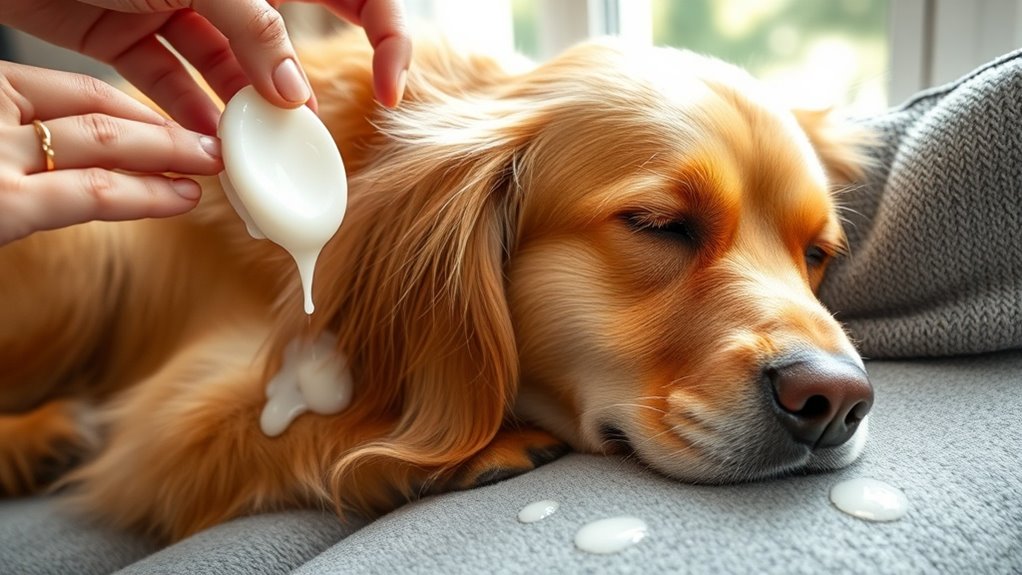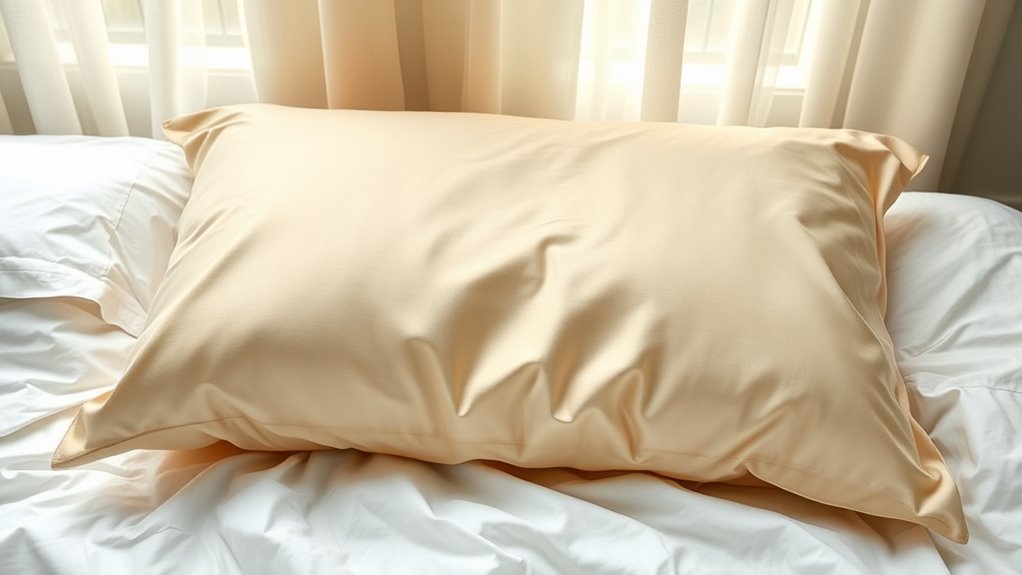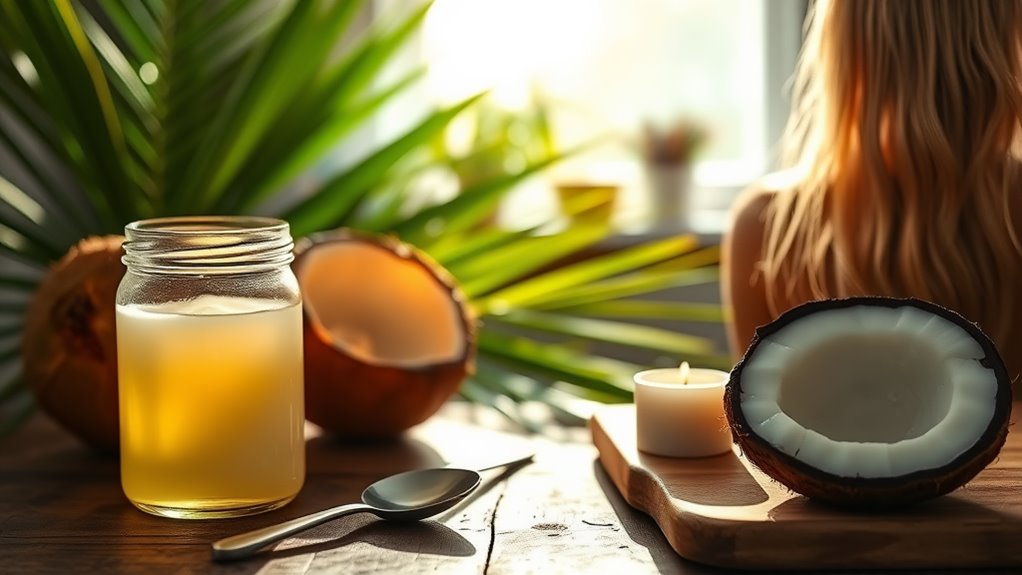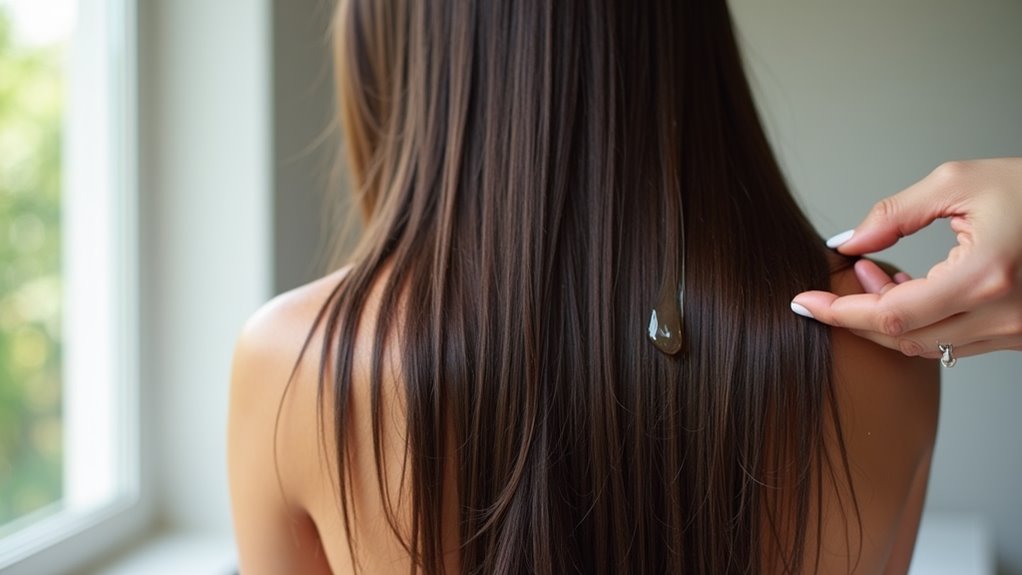Coconut Oil Uses for Skin, Hair, and Beyond
Like the mythical ambrosia of the Greek gods, coconut oil has earned its reputation as nature’s multipurpose elixir. You’ll find its molecular structure uniquely suited for penetrating hair shafts and skin barriers, while its medium-chain fatty acids provide antimicrobial properties. Research continues to validate what traditional medicine has known for centuries: coconut oil’s versatility extends from topical applications to systemic benefits. Let’s examine the scientific evidence behind these remarkable properties.
The Science Behind Coconut Oil’s Benefits
While many natural oils offer health benefits, coconut oil stands out due to its unique molecular composition of medium-chain triglycerides (MCTs). These MCTs are metabolized differently than other fats, providing quick energy and potential therapeutic effects. The lauric acid in coconut oil, comprising nearly 50% of its fatty acids, exhibits antimicrobial properties.
You’ll find that coconut oil uses extend beyond its antibacterial qualities. The oil’s small molecular structure allows it to penetrate cell membranes effectively, while its high saturated fat content makes it resistant to oxidation. This stability at room temperature and its bioactive compounds contribute to its versatility in both dietary and topical applications, making coconut oil effective for enhancing cognitive function and overall health.
Natural Skincare Applications
Coconut oil’s molecular structure makes it an exceptional natural moisturizer for skin care applications. Its medium-chain fatty acids penetrate deeply into the dermis, creating an effective barrier against moisture loss while allowing skin to breathe.
You’ll find antimicrobial properties in coconut oil’s lauric acid content, which helps combat acne-causing bacteria and fungal infections. When applied topically, it reduces inflammation and promotes wound healing through its antioxidant components.
The oil’s vitamin E content protects against free radical damage, while its emollient properties soften rough patches and improve skin texture.
Hair Care and Treatment Methods
Applying coconut oil to your hair delivers essential nutrients directly to the follicles and shaft through its unique molecular composition. The oil’s medium-chain fatty acids, particularly lauric acid, penetrate the hair cuticle to reduce protein loss and prevent breakage.
You’ll achieve superior results by massaging warm coconut oil into your scalp and distributing it through damp hair strands. For deep conditioning, wrap your treated hair in a warm towel for 30 minutes before shampooing. Additionally, coconut oil’s antimicrobial properties can combat scalp conditions that inhibit hair growth.
Studies show that regular application reduces dandruff, combats frizz, and strengthens hair structure. You can also mix it with essential oils for enhanced benefits.
Wellness and Beauty DIY Recipes
Because of its versatile chemical properties, coconut oil serves as a primary ingredient in numerous DIY wellness and beauty formulations.
You’ll find its medium-chain fatty acids effective in creating natural deodorants when combined with baking soda and essential oils.
For facial treatments, blend coconut oil with honey and turmeric to create an antimicrobial mask that combats acne-causing bacteria.
Mix coconut oil with sugar or sea salt to produce an exfoliating body scrub that removes dead skin cells while moisturizing.
When combined with shea butter and beeswax, you can create lip balms and solid lotions that provide sustained hydration and skin protection. Additionally, using coconut oil in hair care can reduce protein loss and strengthen strands over time.
Daily Beauty Rituals Using Coconut Oil
While traditional skincare routines often rely on synthetic products, incorporating virgin coconut oil into your daily beauty regimen can deliver scientifically-proven benefits.
Start your morning by oil pulling with a tablespoon of coconut oil for 15-20 minutes to reduce oral bacteria.
Apply it as a natural moisturizer after showering while skin remains damp.
For hair care, massage a small amount into your scalp before bed to combat dandruff and strengthen follicles.
You’ll also benefit from using it as a makeup remover, cuticle treatment, and lip balm throughout the day, as its medium-chain fatty acids penetrate tissues effectively. Additionally, its antimicrobial properties can help combat harmful bacteria and promote healthier skin.

